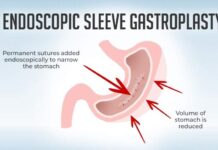Snoring can lead to an insufficient length of night’s rest and to experience a noticeable feeling of fatigue during the day. Identifying the cause of the phenomena is the first step to remedy the situation.
What are the causes?
Speaking of snoring, the causes can be multiple and vary from one subject to another. The phenomenon can be attributed to the presence of organic tissues inside the nasal cavity or throat more prone to vibrate, as they are softer or more flexible than normal. The position that the tongue assumes during rest can also be a factor that should not be underestimated.
The noise is generated when, while sleeping, the air is hindered from being able to escape freely from the nasal cavities and mouth. A partial obstruction in the nose could be caused by a deviation of the nasal septum. Obstacles present inside the nose or mouth cause the air passage channels to narrow and this is due to the noise that is heard from the outside.
Among the most common factors that can affect the passage of air from the mouth and nasal passages during sleep are:
Age
As we age, the tissues within the nasal passages and throat relax, with particular reference to the muscles. This does not allow the breath to flow freely and causes noise.
Constitution
Narrow throat, dilated adenoids and cleft palate (a malformation of the palate, which appears as a more or less extended slit in the anterior part of the hard palate) can be considered among the causes of snoring determined by the individual physique. In men, moreover, the passage of air channel is usually narrower. Even overweight and poor muscle tone are considered factors to be reckoned with.
Nasal problems
From the common cold, to sinusitis, to a deviation of the nasal septum, problems with the nostrils and partial obstructions of the respiratory tract of various kinds combine among the factors that can contribute to the occurrence of the phenomenon of snoring.
Position
The position one assumes during sleep is important. The snorer should not sleep on his back, as such a posture causes the tissues inside the throat to relax them and partially block the airways. From this comes the noise.
Smoking, alcohol and medicines
Smoking, the intake of alcoholic beverages and some types of medicines can contribute to accentuate the phenomenon, as these substances can contribute to greater relaxation of the muscles, with the consequences mentioned above.
What are the remedies?
Sleeping on your side
If you realize how the phenomenon of snoring is accentuated when you are sleeping on your back, the simplest solution is to change position, turning on your side, in order to leave the throat freer.
Change pillow
Using two pillows or a pillow higher than usual can help keep the airways open and clear, supporting the neck and throat. The cushions must be chosen and positioned in such a way that the back rests in a position that is not painful or uncomfortable,
Steaming
If the cause of your snoring is generated by nasal congestion due to colds or allergies, one of the possible solutions is to carry out steaming with water and bicarbonate or essential oils before going to sleep, in order to clear the respiratory tract.
Relaxation techniques
Anxiety, stress and agitation can disturb sleep and accentuate the unwanted phenomenon. In this regard it is possible to resort to some relaxation techniques to be put in place before going to sleep, in order to promote restful sleep and undisturbed rest.
Jala Neti
Verifying that the nasal passages are free before going to sleep is essential to avoid snoring, especially if you are aware that you are subject to the phenomenon. Simply blowing your nose may not be enough. Therefore, it is possible to resort to a method for cleaning the nasal cavities which involves the use of salt water and a small instrument similar to a teapot, called Jala Neti.
Nasal patches
If the problem does not concern the internal tissues of the throat, but an insufficient opening of the nasal cavities, the special nasal patches could be useful to improve the situation. Their effectiveness can vary from person to person, depending on the extent and the real causes of the problem.
One such device that improves air flow while sleeping thereby preventing snoring is StopSnore Clip. Made of soft silicone, the device can be clipped on your nose to gently apply pressure inside your nose and stop you from snoring. To know more about this useful device and understand how it works, read this StopSnore Clip review.
Avoid alcohol
Alcohol consumption can affect night sleep, making it irregular and ineffective. It can also cause greater relaxation of the internal tissues of the throat and nostrils, causing greater rubbing of the air against their walls and therefore noise.
Stop smoking
Smoking can compromise the correct functionality of our respiratory system, favor the production of mucus and the formation of obstructions in the nasal cavities. It can also be the cause of coughing at night, which could contribute to an even more disturbed and difficult sleep.
Hot shower
Taking a hot shower before going to sleep, in the opinion of experts, can help to free the nasal cavity, in particular due to the water vapor that will be breathed in and which will help to dilate the same. During the shower it is also possible to clean the nostrils with warm water or rinse with slightly salted water.
Hydration
Dehydration can be the cause of dryness phenomena affecting the internal membranes of the throat or nose. For this reason, it is recommended to drink enough plain water during the day, so that dehydration does not contribute to aggravating the phenomenon of snoring.
Conclusion
Each of us can snore from time to time, but if the phenomenon occurs frequently, it can affect the quality of sleep and its duration, as well as annoy your family or roommates.
Persistent loud snoring can also be a symptom of a bigger problem such as sleep apnea. Other symptoms of sleep apnea include pauses in breathing during sleep, excessive daytime sleepiness, and waking with a headache, dry mouth, or sore throat. Sleep apnea requires continuous positive airway pressure (CPAP) therapy using an oral appliance or a CPAP machine.



































































